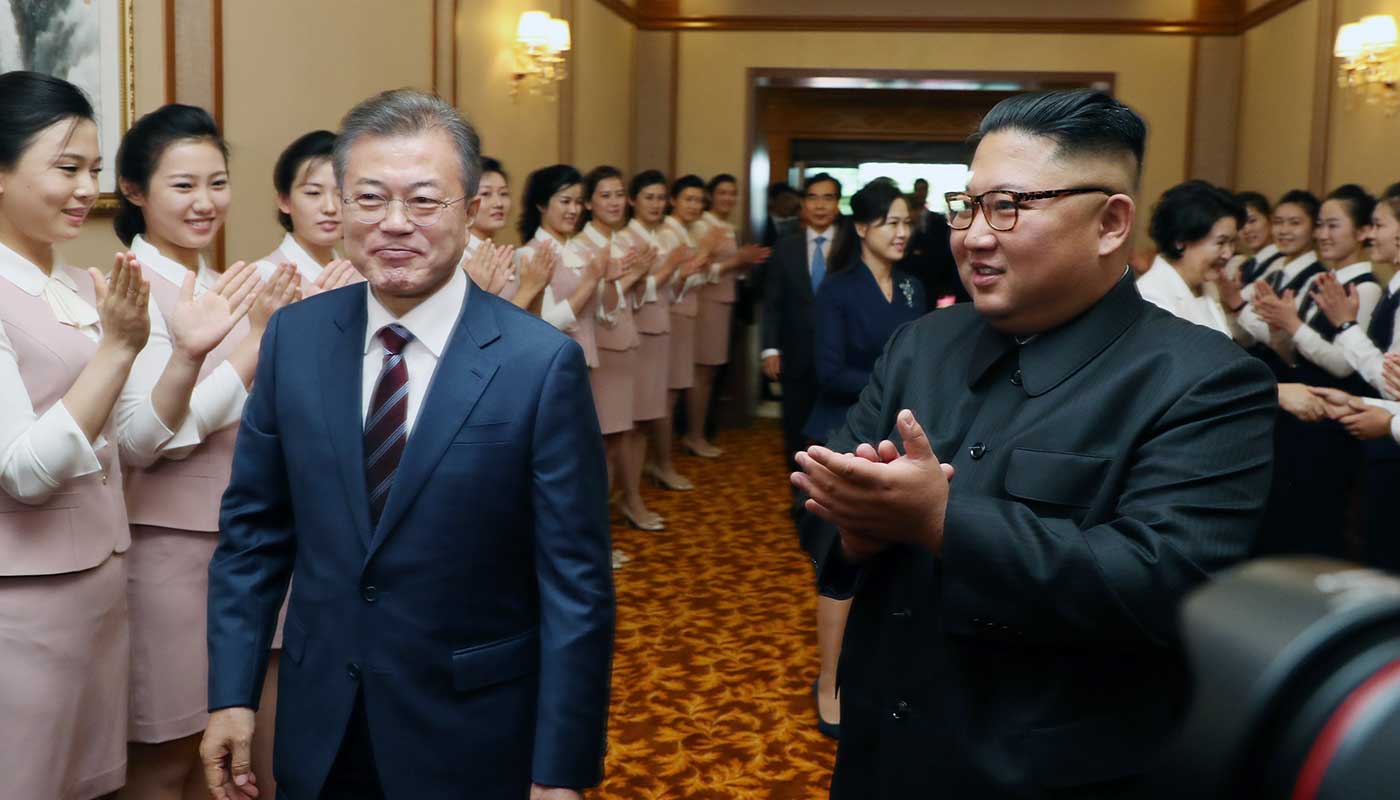US ‘ready to resume talks’ with North Korea
Mike Pompeo invites Pyongyang foreign minister to a meeting in New York next week

A free daily email with the biggest news stories of the day – and the best features from TheWeek.com
You are now subscribed
Your newsletter sign-up was successful
The US has revealed its willingness to resume talks with North Korea, following a meeting between Kim Jong Un and South Korean president Moon Jae-in at which Kim pledged to dismantle key parts of his nuclear weapons programme.
Following Kim and Moon’s meeting this week in Pyongyang, North Korea said it would close down key missile facilities and “permanently dismantle” facilities central to fuel production for nuclear warheads, provided the US took “unspecified actions”, Reuters says.
US Secretary of State Mike Pompeo announced he had invited North Korean foreign minister Ri Yong-ho to New York next week, in a bid to re-start talks aimed at achieving denuclearisation by 2021.
The Week
Escape your echo chamber. Get the facts behind the news, plus analysis from multiple perspectives.

Sign up for The Week's Free Newsletters
From our morning news briefing to a weekly Good News Newsletter, get the best of The Week delivered directly to your inbox.
From our morning news briefing to a weekly Good News Newsletter, get the best of The Week delivered directly to your inbox.
“This will mark the beginning of negotiations to transform US-DPRK relations through the process of rapid denuclearisation of North Korea,” Pompeo said in a statement.
Pompeo has also asked other North Korean officials to meet the new US special envoy, Stephen Biegun, in Vienna on an unspecified date.
The New York Times says that despite the offer put forward by North Korea falling “far short of what American officials have demanded”, Donald Trump nonetheless congratulated Kim and Moon over the agreement signed after their meeting on Wednesday.
However, the Times notes that the agreement between North and South Korea “seemed aimed more at reducing tensions along their shared border than moving quickly toward denuclearisation”.
A free daily email with the biggest news stories of the day – and the best features from TheWeek.com
The deal also sidesteps US demands for North Korea to surrender all of its nuclear capabilities before negotiations begin, instead allowing Pyongyang to work with South Korea on a step-by-step process of dismantling the weapons programme.
-
 The week’s best photos
The week’s best photosIn Pictures An explosive meal, a carnival of joy, and more
-
 The ‘ravenous’ demand for Cornish minerals
The ‘ravenous’ demand for Cornish mineralsUnder the Radar Growing need for critical minerals to power tech has intensified ‘appetite’ for lithium, which could be a ‘huge boon’ for local economy
-
 Why are election experts taking Trump’s midterm threats seriously?
Why are election experts taking Trump’s midterm threats seriously?IN THE SPOTLIGHT As the president muses about polling place deployments and a centralized electoral system aimed at one-party control, lawmakers are taking this administration at its word
-
 Ex-South Korean leader gets life sentence for insurrection
Ex-South Korean leader gets life sentence for insurrectionSpeed Read South Korean President Yoon Suk Yeol was sentenced to life in prison over his declaration of martial law in 2024
-
 Will increasing tensions with Iran boil over into war?
Will increasing tensions with Iran boil over into war?Today’s Big Question President Donald Trump has recently been threatening the country
-
 Corruption: The spy sheikh and the president
Corruption: The spy sheikh and the presidentFeature Trump is at the center of another scandal
-
 Rubio boosts Orbán ahead of Hungary election
Rubio boosts Orbán ahead of Hungary electionSpeed Read Far-right nationalist Prime Minister Viktor Orbán is facing a tough re-election fight after many years in power
-
 Greenland’s capital becomes ground zero for the country’s diplomatic straits
Greenland’s capital becomes ground zero for the country’s diplomatic straitsIN THE SPOTLIGHT A flurry of new consular activity in Nuuk shows how important Greenland has become to Europeans’ anxiety about American imperialism
-
 Epstein files topple law CEO, roil UK government
Epstein files topple law CEO, roil UK governmentSpeed Read Peter Mandelson, Britain’s former ambassador to the US, is caught up in the scandal
-
 Iran and US prepare to meet after skirmishes
Iran and US prepare to meet after skirmishesSpeed Read The incident comes amid heightened tensions in the Middle East
-
 Which way will Trump go on Iran?
Which way will Trump go on Iran?Today’s Big Question Diplomatic talks set to be held in Turkey on Friday, but failure to reach an agreement could have ‘terrible’ global ramifications